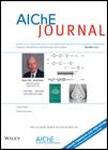版权所有:内蒙古大学图书馆 技术提供:维普资讯• 智图
内蒙古自治区呼和浩特市赛罕区大学西街235号 邮编: 010021

作者机构:Univ Padua Dept Ind Engn CAPE Lab Comp Aided Proc Engn Lab Padua Italy Tufts Univ Syst Res Inst Chem & Biol Proc Dept Chem & Biol Engn Medford MA USA Tufts Univ Syst Res Inst Chem & Biol Proc Dept Chem & Biol Engn Medford MA 02155 USA Univ Padua Dept Ind Engn CAPE Lab Comp Aided Proc Engn Lab I-35131 Padua Italy
出 版 物:《AICHE JOURNAL》 (美国化学工程师协会志)
年 卷 期:2023年第69卷第4期
页 面:e17925-e17925页
核心收录:
学科分类:0817[工学-化学工程与技术] 08[工学]
基 金:Department of Industrial Engineering of the University of Padova BIRD194889-SID 2019
主 题:batch process data-driven modeling freeze-drying process optimization pharmaceuticals
摘 要:The use of computationally demanding knowledge-driven models to optimize a process might encounter substantial numerical challenges. Because a model is an abstraction and approximation of the process, calculating the exact model optimum might not be necessary because its industrial implementation is bound to be an approximate one. Here we are exploring an alternative optimization route through a surrogate model. Because one of the decision variables affecting the optimization is time-varying, the Design of Dynamic Experiments is used to estimate the surrogate model. The process considered here is a freeze-drying process widely used in the pharmaceutical industry. The model used is a stochastic model describing the process in great detail. It is shown that the proposed data-driven route calculates the optimum in about 8 h, as opposed to 22 h for the knowledge-driven model, while sacrificing only 15% in the computed value of the process performance.